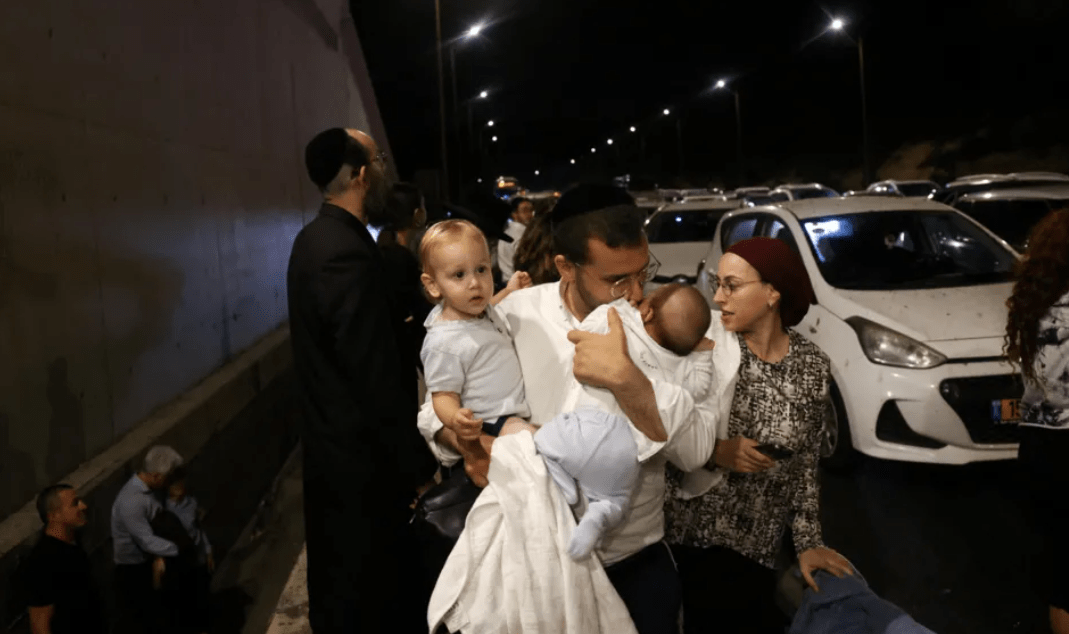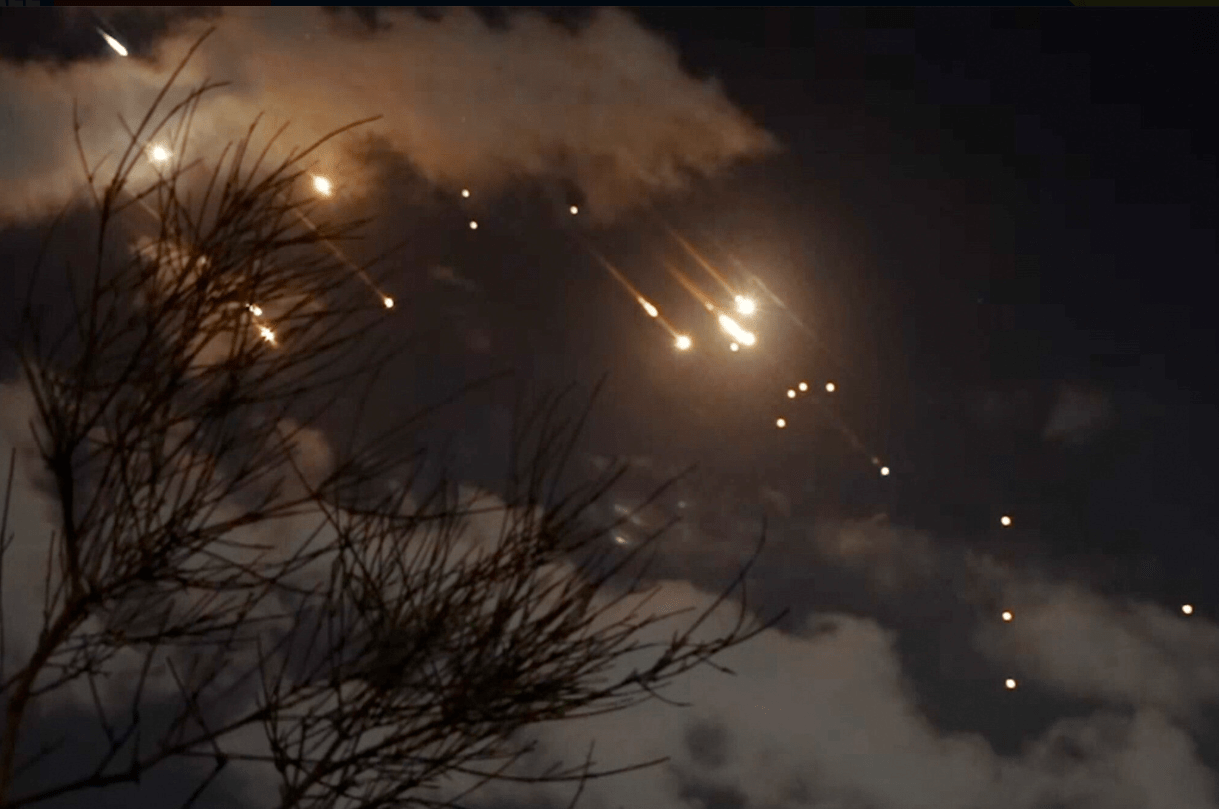Iran has launched over 180 missiles at Israel in a large-scale attack that has significantly heightened concerns about a potential all-out war in the Middle East. The barrage sent millions of Israelis rushing to shelters as explosions illuminated the night skies over Tel Aviv and Jerusalem. According to paramedics, two people suffered light injuries from shrapnel.
The Israeli Defence Forces (IDF) reported that most of the missiles were intercepted with assistance from the United States. However, a “small number of hits” were confirmed. Israel labelled the attack as a “dangerous escalation” and warned of impending “consequences.”
Iran’s Islamic Revolutionary Guard Corps (IRGC) claimed responsibility, stating the missiles hit their intended targets. The attack was framed as retaliation for the killings of leaders from Hezbollah and Hamas, as well as a high-ranking Iranian general. In a statement, the IRGC warned of further strikes if Israel retaliated.

U.S. and Global Reactions
The United States dismissed the missile strike as “defeated and ineffective.” National Security Adviser Jake Sullivan explained that no major damage to Israel’s military assets had been reported. He condemned the attack, calling it a “significant escalation,” and vowed that there would be “severe consequences” for Iran’s actions. Sullivan further added that the U.S. is working closely with Israel on a response.
The missile attack comes amid rising tensions, following Israel’s invasion of southern Lebanon earlier in the day. The Israeli military targeted what it described as “Hezbollah terror targets” in border villages, aiming to protect residents in northern Israel from ongoing attacks by Hezbollah rockets and drones.
UN Secretary-General António Guterres expressed grave concern over the situation, condemning the growing conflict. “This must stop,” he urged, calling for an immediate ceasefire.
Missiles Light Up the Sky
At approximately 7:30 pm local time on Tuesday, air raid sirens sounded across Israel, with the IDF issuing warnings that missiles were incoming from Iran. In Jerusalem, the night was interrupted by the sounds of loud explosions as Israel’s air defence systems intercepted the projectiles. Footage circulating on social media captured the scene as trails of light filled the sky, followed by plumes of smoke as the missiles were either intercepted or detonated.
Despite the severity of the attack, within an hour, Israeli authorities announced that civilians could exit their shelters, as no further threats were identified. Rear Admiral Daniel Hagari, IDF spokesperson, confirmed that while there were several missile strikes in central and southern Israel, most of the incoming missiles had been intercepted.
“This attack by Iran is a severe and dangerous escalation,” Hagari stated. “There will be consequences. Our defensive and offensive capabilities are at the highest level of readiness.” He assured that Israel was prepared to respond “wherever, whenever, and however we choose,” under the direction of the Israeli government.

Iranian Retaliation and Military Posturing
Iran justified the missile attack as a response to several recent deaths of key figures aligned with its interests. Among those killed were Ismail Haniyeh, a Hamas political leader who died in an explosion in Tehran, and Hassan Nasrallah, the Hezbollah leader who was killed in an Israeli air strike in Beirut last week. The IRGC framed the attack as Iran’s right to self-defence, stating it targeted sensitive military and security centres within Israel.
The IRGC also warned Israel of “crushing blows” if it responded to the missile barrage. Iranian state media claimed several critical Israeli military sites, including air bases and tank positions, had been struck.
Meanwhile, the U.S. has reinforced its military presence in the region. The Pentagon announced the arrival of additional fighter jets and the extension of the USS Abraham Lincoln carrier strike group’s deployment, to deter further aggression. This follows an earlier series of drone and missile attacks by Iran in April, which had been largely neutralised by Israel and its allies.
Broader Implications
The conflict between Iran and Israel has been exacerbated by Iran’s network of allied groups throughout the Middle East, including Hezbollah in Lebanon and Hamas in Gaza. These groups, which form what is often referred to as the “Axis of Resistance,” have long been at odds with Israel and the United States.
The attack has further complicated the volatile situation in the region, where escalating violence and entrenched political divides have left many fearing a broader regional war.
As Israeli Prime Minister Benjamin Netanyahu addressed his nation, he framed the attack as part of Israel’s ongoing battle against Iran and its allies. “We are in the midst of a campaign against Iran’s axis of evil. Together, we will stand steadfast in the trying days ahead,” he vowed.
As the situation unfolds, the world watches closely, with fears of further escalation looming over an already fragile region. The calls for de-escalation and peace are growing, but the path ahead remains uncertain.

